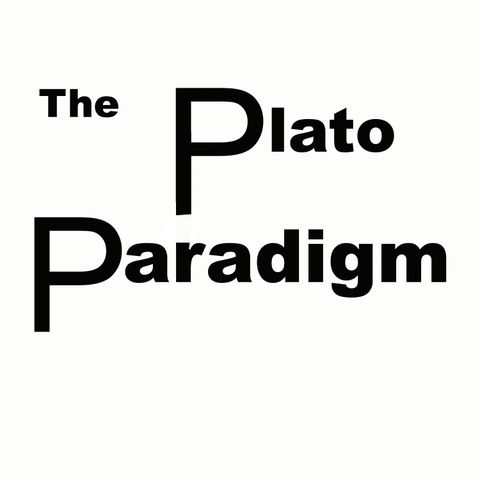
Contactos
Información
What Plato Dramatized

The Plato Paradigm
The Plato Paradigm
0001 Plato and Paradigms
20 SEP. 2021 · How did Plato really intend his dialogues to be read? If everything in a dialogue is taken into account, we don't need to guess. In this series, I'll demonstrate with a close reading of a few short dialogues what Platonic dialogues are actually about. No previous experience is required, and indeed may actually be an advantage.
0002 Hippias Minor 363a
23 SEP. 2021 · Why is Socrates silent? Who is Eudicus? These and other non-philosophical questions meet us immediately at the beginning of Plato's Hippias Minor
0003 Hippias Minor 363b
25 SEP. 2021 · Socrates begins spinning his web. Using Eudicus' father, Socrates restricts Hippias, who hasn't even entered this conversation yet, to discussing just Achilles and Odysseus, and to supporting Achilles as the better hero, which everyone knows to be true anyway: he is aristos (best) in the Iliad.
0004 Hippias Minor 363c
30 SEP. 2021 · Socrates, Hippias, and Eudicus cooperate to create a competition between Socrates and Hippias.
0005 Hippias Minor 364b
1 OCT. 2021 · The changing faces of Socrates' first question about Achilles and Odysseus. What is the connection between Hippias and the three Homeric heroes, Achilles, Nestor, and Odysseus?
0006 Hippias Minor 364c
6 OCT. 2021 · Apparently Hippias has a prepared speech for his exhibitions in which he claims that Homer made Achilles the best, Nestor the most expert, and Odysseus the most polytropos. Socrates is puzzled (only) by the last example, despite this epithet appearing in the first line of the Odyssey.
0007 Hippias Minor 364e
7 OCT. 2021 · Socrates is confused about the most obvious thing in Homer's Odyssey, applying Odysseus' epithet to Achilles. Hippias then has to explain that Achilles is better than Odysseus precisely because Achilles is not polytropos while Odysseus is. Socrates' trap is sprung.
0008 Hippias Minor 365b
12 OCT. 2021 · Socrates uses the eristic debate to predict what Hippias will say. Because Socrates attributes polytropos to Achilles, Hippias is required by eristics to give the term a negative connotation and reattribute it to Odysseus. LSJ, the Greek-English Lexicon, says that Plato gives the term this negative connotation, and makes Hippias' temporary wordplay an acceptable usage.
0009 Hippias Minor 365d
16 OCT. 2021 · Homer is finally dropped from the conversation. Hippias will say what he and Homer think... Socrates asks about the false person, and Hippias in response, because of eristic choices (Black or White, no Grey) offered by Socrates, attributes to the false person: ability, prudence, and expertise.
0010 Hippias Minor 366a
22 OCT. 2021 · Socrates seems to have no idea how to win.an eristic debate. Instead of making the audience laugh at Hippias, he allows the sophist to agree that he, Hippias, is the most able, most expert, and best, at arithmetic.
What Plato Dramatized
Información
| Autor | Ivor Ludlam |
| Organización | Ivor Ludlam |
| Categorías | Filosofía |
| Página web | - |
| platoparadigm@icloud.com |
Copyright 2024 - Spreaker Inc. an iHeartMedia Company
